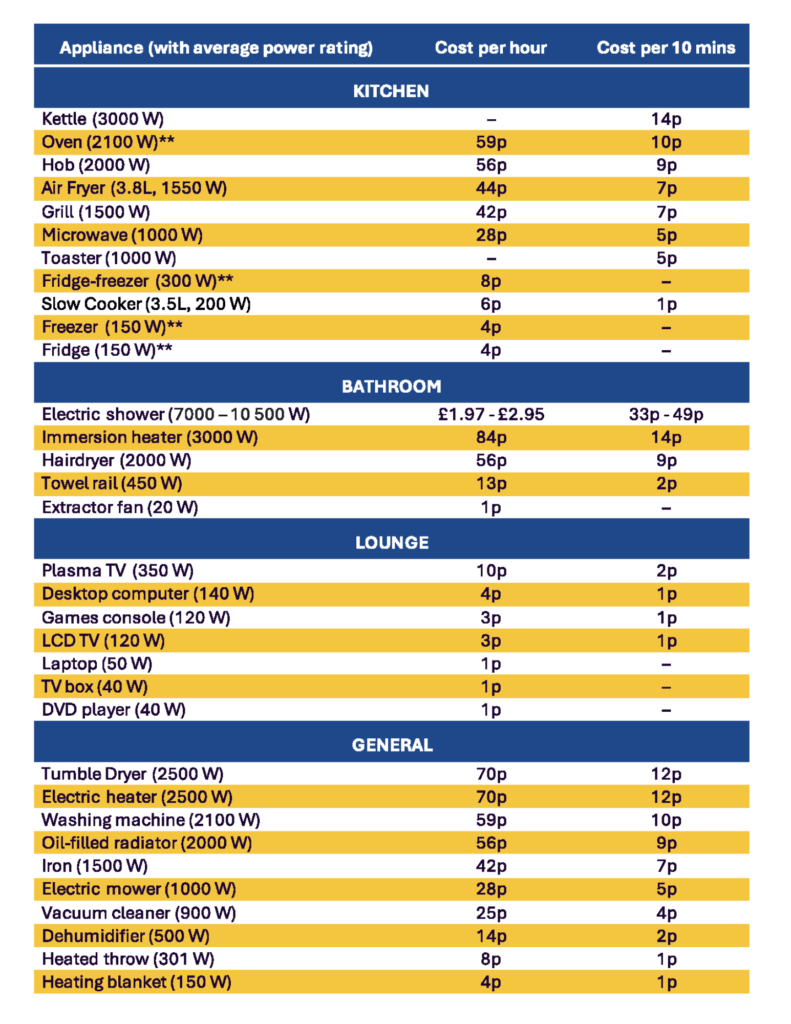How much electricity are you really using?
Understanding how much electricity your home uses is a great way to start saving money and lowering your bills. You might be surprised to find out that some of the most common household appliances are also the biggest users of energy.
Which appliances use the most energy?
Some appliances use a lot more electricity than others. Anything that heats up or runs for a long time tends to use more energy. For example:
- Electric showers
- Tumble dryers
- Ovens
- Kettles
Other things, like LED lights or phone chargers use much less energy in comparison.
👇 Take a look at the table below to see how much it costs to run different appliances, based on the January – March 2026 energy price cap direct debit rate for the South West region of 28.16p per kWh. You may be surprised by what’s using the most energy.

** Appliances like ovens, fridges and freezers turn themselves off when they reach the required temperature, so for some of the time that they are in use they won’t be using much or any electricity. So the daily cost of running a fridge or freezer is not 24 x the hourly cost. You won’t save energy by turning your fridge off for short periods of time, as it will just use more energy to cool down again when you turn it back on.
It’s important to keep your fridge at 5°C or cooler, so your food lasts longer and is more resistant to food poisoning bugs. Storage above this temperature range can allow bacteria to grow or harmful toxins to form, which can cause food poisoning if eaten.
Need more help? Try the Sust-It Electricity Cost Calculator
If you want to understand your energy use better, the free Household Energy Saving Tool from MoneySavingExpert is a great way to start. It’s a virtual home you can explore, showing how much different appliances cost to run. Plus, it gives helpful tips on how to save energy without giving up too much.
Simple ways to save energy
By becoming more aware of how much electricity your appliances use, you can take control of your energy consumption. Whether you’re looking to cut costs or live more sustainably, small changes in how and when you use energy can have a big impact.
Making small changes in the way you use energy can help lower your bills without making life harder. Here are a few ideas – even just one or two of these changes can make a difference to your bill:
- Use energy-saving settings on your washing machine and other appliances
- Take shorter showers or wash clothes at a cooler temperature
- Switch off appliances at the wall, instead of leaving them on standby
- Use a microwave or slow cooker instead of the oven when you can
- Plug-in energy monitors can help you track electricity usage in real time, if you have access to one

